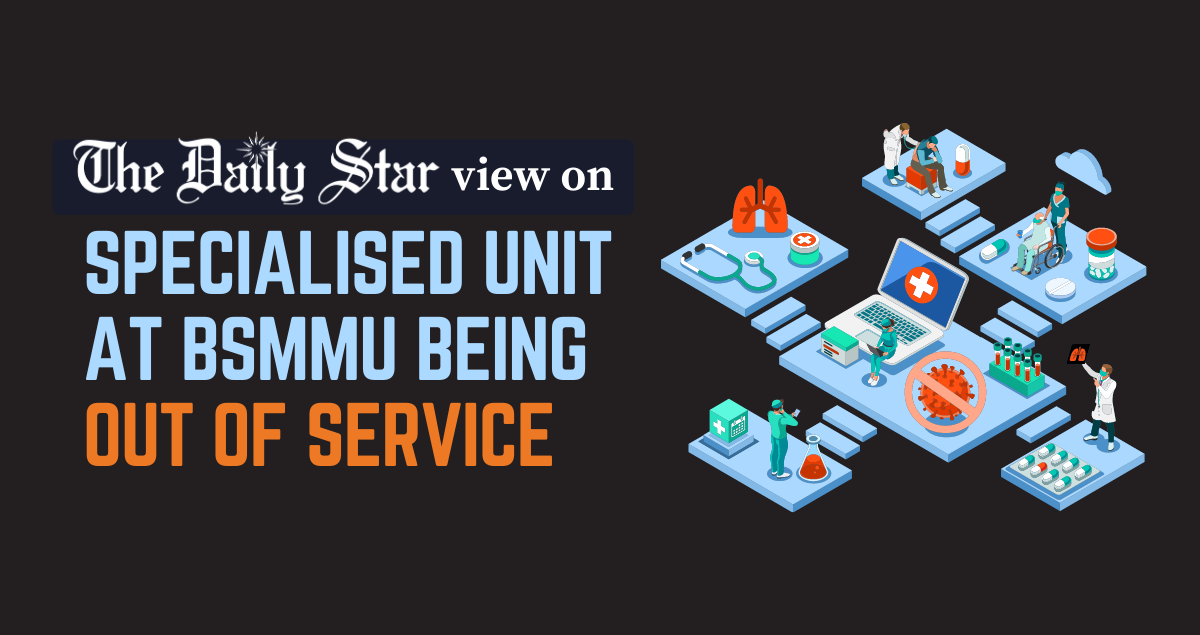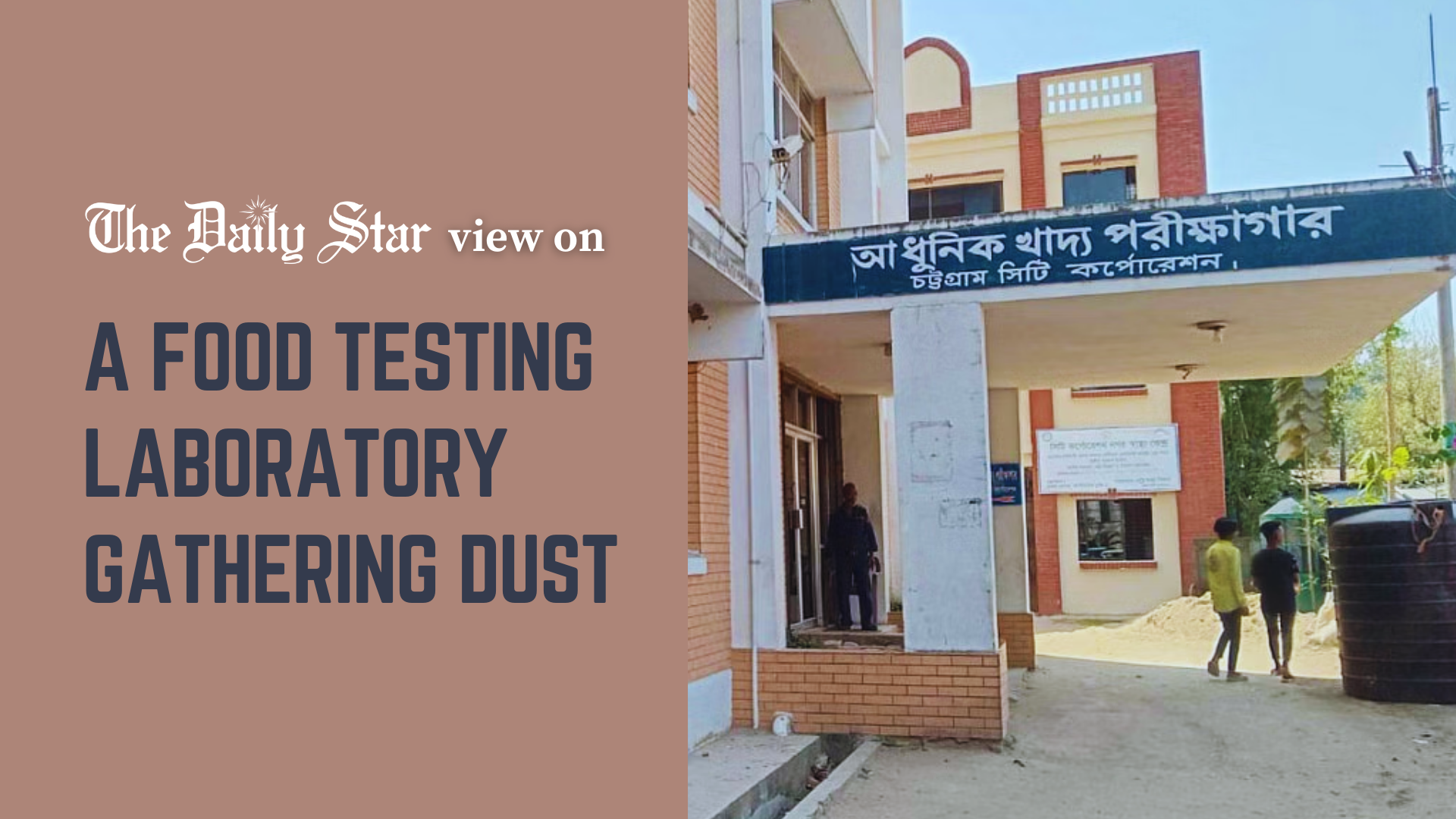Make BSMMU specialised hospital fully operational

When it comes to public healthcare in a poor country like Bangladesh, any wastage of resources and money hits particularly hard as it deprives millions of low-cost medical care. This is why it is hard to accept what has been happening at the Bangabandhu Sheikh Mujib Medical University's (BSMMU) super-specialised hospital.
Inaugurated in September 2022—with world-class facilities capable of providing stem cell therapy, gene therapy and robotic operations, and a capacity to treat 5,000 patients a day—the hospital now receives less than 500 patients. This is due to shortage of doctors, technicians and support staff, as well as corruption involved in their recruitment. We have commented on this before, and sadly, the situation has not changed much even in a year, as per a recent report. What's more disheartening is that 90 percent of the medical equipment bought from South Korea with $33 million remains unused because of the manpower shortage. The warranty period of some of the machines is nearing expiration, requiring additional maintenance cost. Add to that the burden on the public to repay the Tk 1,047 crore loan that the government had taken from South Korea to build this state-of-the-art hospital.
In short, far from providing world-class health service at low cost as advertised, it's turning into a white elephant. A country where out-of-pocket health expenditure is among the highest in the world, and where approximately 800,000 people travel to foreign countries for medical treatment, this super-specialised facility could have been a beacon of hope. That hope has turned into despair because of systemic negligence and corruption, with visiting patients not getting to see doctors on time or having simple diagnostic tests done there. They even have to pay almost the same doctor fees as in private hospitals.
This is not the first time that public trust in the health sector has been betrayed. Thanks to the problems mentioned above, we have often seen how well-intentioned projects like this one turned into a debacle in their operation phase. It seems the projects are valued more for the money that can be spent rather than the return on investment, or the benefits owed to the public. How else can the purchase of medical equipment without even recruiting technicians to operate them be justified? We urge the higher authorities to critically look into the case of BSMMU's super-specialised hospital and make it fully operational. Longstanding issues in public procurement and recruitment that are also plaguing other health-sector projects must be resolved, too.



 For all latest news, follow The Daily Star's Google News channel.
For all latest news, follow The Daily Star's Google News channel. 


Comments